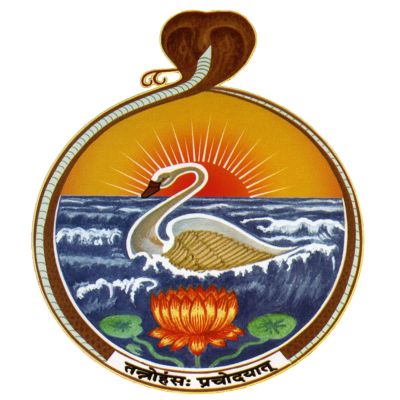Swami Tattwamayananda’s class on Srimad Bhagavad Gita is held at the Vedanta Society of Northern California, San Francisco (founded by Swami Vivekananda in 1900) on Friday evenings in the First Universal Hindu Temple in the West (founded by Swami Trigunatitananda in 1905). Classes are held on Friday night at 7:30 pm. All are most welcome.The Srimad Bhagavad Gita is the most important spiritual classic of Hinduism.Swami Tattwamayananda, currently the Minister of the Vedanta Society of Northern California, San Francisco, (originally founded by Swami Vivekananda in 1900) served in various centers of the Ramakrishna Order in India as editor, publisher, and teacher of Sanskrit, Advaitic texts such as Sri Shankaracharya's commentaries on the 'Prasthanatraya' (the fundamental Sanskrit texts of Vedanta philosophy), Buddhism and Indian philosophy. He underwent traditional training in Hindu scriptures, Sanskrit, Vedic and Vedantic literature for many years, from his early days...
https://www.spreaker.com/show/srimad-bhagavad-gita_1
episode 151: 151 - The Three Levels of Austerities | Swami Tattwamayananda
Our temperaments are determined by a combination of the three gunas – sattva guna, rajo guna and tamo guna. Sattva guna is the highest and most sublime. It manifests itself as wisdom and serenity. Rajo guna manifests itself as dynamism and ambition. Tamo guna manifests itself as laziness and delusion.
The three gunas reflect in different areas of human conduct such as the way we practice rituals, austerities and charity.
The 14th, 15th and 16th verses discuss tapah (austerity) - physical austerity, austerity of speech and mental austerity. Austerity is about directing our mind and senses towards higher ideas.
14th verse: “Those who practice reverence towards gods/goddesses, ancient sages, wise men and tradition, who do so with mental and physical purity, who do so with chastity and non-violence, whose body, mind and intellect operate in harmony and in one direction – their austerity is of the physical type.”
The 14th verse refers to the “twice born”. This refers to people who had a biological birth and later a spiritual birth through initiation. The verse says that we should respect such good people in society. Then we develop their good qualities in ourselves. What we appreciate in others, that we develop in ourselves.
15th verse: “Speech that does not cause vexation or anguish or disturbance in the minds of the listener, which is truthful, which is agreeable to the listener, which is beneficial to the listener, as well as recitation of the vedas, are austerities of speech.”
16th verse: “Serenity of mind, sympathy, kindliness, silence, self-control, sincerity and honesty in dealings – these are austerities of the mind.”
17th verse: “When the three-fold austerities described in the 14th, 15th and 16th verses are done with no desire for material rewards, with the mind, word, thoughts and deed in harmony with each other, with no pretention, with a serene expression – such austerity is considered Sattvik.”
18th verse: “When the three-fold austerities are done with the objective of getting respect or acceptance or done with ostentation and pretention – such austerity is considered Rajasik. Such austerity is shaky and transitory in nature.”
A smile that is done with pretention or for diplomacy does not last long – it is transitory in nature. Unnatural expressions create problems for the mind.
19th verse: “Due to misconception, without following principles of moderation, if someone practices austerities that involve self-torture or harm others – such austerity is considered Tamasik and doomed for disaster.”
If a spiritual seeker is very evolved, such as Buddha, and is able to withstand extreme austerity with joy because he is connected with the transcendental, then such austerity is Sattvik. It is a royal highway to enlightenment.
Bhasmasura practiced austerity to gain powers to harm others. He ended up destroying himself.
The 20th verse describes charity of the sattvic type.
20th verse: “Charity done with the attitude “It is my duty to help this person”, done in the right manner without any expectation of return, given to someone who is in need of it, who will use it for constructive purpose, and done at the right place and time – such charity is Sattvik.”
In commentaries on this verse, Kurukshetra is cited as an example of an auspicious place for charity and Sankranti is cited as an auspicious time for charity. Such charity is helpful to both the giver and receiver.
Every act of charity loosens our karmic blocks. A beginner’s mind may not cooperate when he starts spiritual practices. This is due to karmic blocks or accumulated samskaras which make him act in a certain manner. Noble, unselfish deeds, such as charity, generate spiritual energy and loosen the karmic blocks.
With spiritual practices, such as the three yogas, there is a gradual evolution of the human consciousness from the lowest level of Muladhara to the highest level of Sahasrara. This ascent reflects the loosening of karmic blocks and their eventual disappearance. One should start with karma yoga, in the form of noble, unselfish activities.
